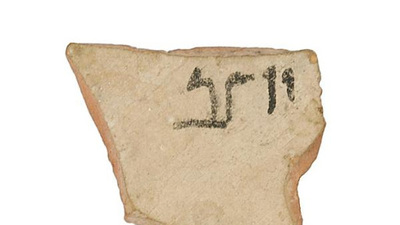There is a pasuk missing from the Torah, a verse that is the most important of all – without which the Torah is not complete!
The absence of this verse is deliberate – for there is no way to write it.
Why? Because it would violate the principle that the Torah was written “bilshon bne adam” – “in the language of human beings”, i.e. in a manner human beings can understand it. This is impossible in the case of this verse.
This verse can only be “written” in God’s personal “language”, which is beyond the capability of humankind to understand. Thus, writing it holds no significance for human beings.
This missing verse should have been written before the first verse in the Torah: “In the beginning God created heaven and earth.” This verse should have told us why God “decided” to create heaven and earth, the millions of stars, blackholes, animals, vegetation, and above all, human beings.
In other words: it should inform us of the purpose of all existence and why God “requires” it all.
However much we search, there is not a word about all this in all of the Torah. The reason for this is obvious. Only God is capable of knowing the enigma and purpose of His own creation. It belongs to a realm that no other being is able to fathom.
Furthermore, “requiring” something is a human concept not applicable to God. As long as God “requires” something it means He is not perfect, for something is missing.
Such a claim cannot be applied to God, and thus the creation of anything is completely mysterious.
To argue that God created human beings so they may receive reward is completely unsatisfactory – why must a human being exist so as to receive reward ?
Furthermore, why do humans beings need millions of stars and blackholes? Does it benefit them in any way other than increasing the mystery of Creation?
Therefore, Maimonides, the keenest of all Jewish minds, disagreed with most commentators when he said that the verse in Mishle (Proverbs) 16:4: “The Lord has made everything “lema’anehu” cannot mean “for his sake”, i.e. referring to a human being. It can only be referring to God Himself, and thus mean “for the sake of Himself” (Guide for the Perplexed, 3, 13).
Since only God is able to know why He created the universe, one must be God to comprehend this.
The consequences of this insight are enormous. It means that the chapter in Bereshit (Genesis) detailing the Creation does not supply all the necessary information. The reader enters the Torah’s narrative in the “middle” of the story, not at the very beginning. Hence, he lacks the most crucial of all forms of information. The answer to the great “WHY?
This is the reason all theodicies, attempts to justify God in the event of the most terrible tragedies in this world, are doomed to fail. We are incapable of understanding why God allows (or causes) earthquakes, floods, devastating illnesses or the Holocaust.
The reason for this incapability is clear.
We lack the knowledge to answer such questions since the purpose of the universe cannot be expressed in human terms. And we can be sure that the issue of the existence of evil is closely related to the question of purpose, since it is clearly built into the very foundation of the Creation.
It is a crucial mistake not to recognize this fact. Answering that we do not know why evil exists is not “apologetic”, an unfounded justification of evil to circumvent a problem which challenges our belief in God, but fundamental to the very fact of being humans and not being God.
We are all “late-comers” when it comes to reading the Torah. We always start with the second verse; hence, we are handicapped. In order to address why there is evil in this world we need to know why God created this universe and what its purpose is. But there is no way to know the answer to this question. It is an impossible task. Therefore, it is meaningless to even try answer the question of the existence of evil.
In other words: We can only justify such a question when God provides us with the first verse. This, however, is a contradiction in terms. Afterall this verse should tell us why God refused to make us into Gods. At this point we stand before the entrance to the infinite, an entrance sealed by an impenetrable door.
It is for this reason that such lack of knowledge cannot be used to deny God’s existence. Lack of crucial knowledge denies one the possibility of answering a question that depends on this very knowledge.
It is true that we claim that God is “all good” and that we have many questions about this claim, but we must suspend this assertion when contemplating the very purpose of creation.
After all, we have been granted the merit to see the plants above the ground, so to speak, but never the roots beneath the surface.
So, we are left with an unanswerable question. This is the tragedy of all human beings, but also their greatness: the awareness that human beings are not God makes them humble, and above all makes them realize that they are the only creatures that long constantly for God. This is significant since longing indicates a sense of missing something or someone, and longing is the ultimate expression of love and joy.
“Heaven would not be Heaven if we knew what it were” (John Suckling, Against Fruition, Fragmenta Aurea, 4).




